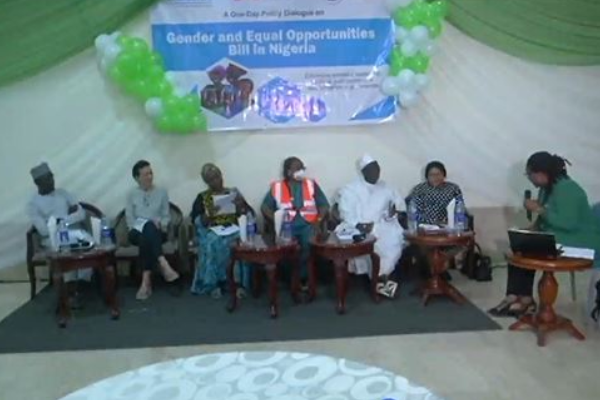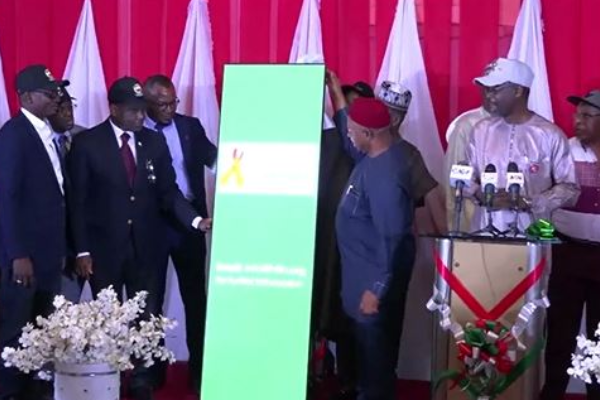Since the return of democracy in Nigeria, attempts have been made to pass the Gender and Equal Opportunity Bill but this has over the years suffered setbacks.
Religious and cultural biases have combined to stop the bill.
Participants at a policy dialogue on the challenges, prospects and way forward for the Gender and Equitable Opportunities Bill 2022 have expressed hope in its imminent passage.
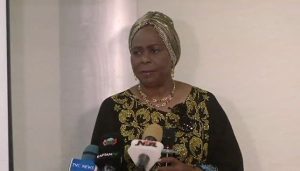

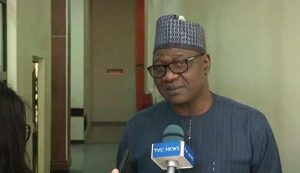
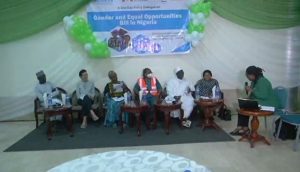
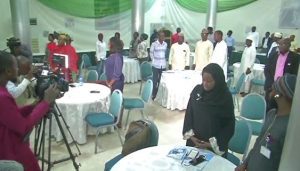
The session put together by the United Nations Women Organisation craves support for the rephrased Bill.
The latest statistics on the ratio of males to females in Nigeria shows 49.8 per cent to 51.2 per cent.
This, invariably means the females are more than males and they also constitute the larger voting population in the country.
But the steady decline in their political participation and representation in governance has been a disturbing phenomenon.
Senator Biodun Olujimi says over fifty per cent of a population cannot be completely shut out.
The policy dialogue brought together supporting and dissenting voices to the bill and the goal is to reach a meeting point.
Biodun Olujimi says the bill which seeks to prescribe standards for Gender and Equal Opportunities has now been redrafted for easy understanding.
Islamic Scholar, Fuad Adeyemi is one of those opposed to the bill and he gives reasons.
According to him, there is no law in Nigeria that prohibits a woman from competing to become anything.
He noted that women are being treated as disabled people.
Child marriage, widowhood, workplace discrimination and inheritance are some of the issues brought to limelight in the bill and hopes are high that it will see the light of day before the end of the Ninth National Assembly in June, 2023.

